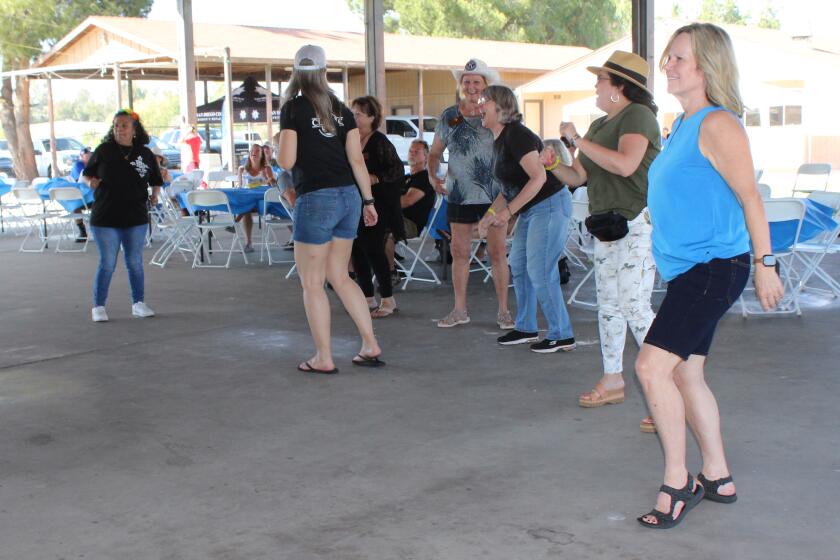NCAA denies MVA eligibility for top sports scholarships
By Bill Tamburrino
Parents and student/athletes at Mountain Valley Academy (MVA) have learned that the National Collegiate Athletic Association (NCAA) is not recognizing MVA graduates as eligible to receive sports scholarships.
On Thursday, Oct. 11, MVA, an alternative high school program at Ramona Community School, held a meeting. Attending were 14 parents, teachers, school administrators, and a student.
The main agenda item was to explain the NCAA decision that stated that student/athletes are not eligible to receive grants-in-aide (scholarships) and are not eligible to participate in NCAA Division I and Division II athletic programs after graduating from MVA.
MVA counselor Chuck Lopez got the decision on March 12, when the NCAA Eligibility Center Nontraditional Academic Review Questionnaire regarding nontraditional coursework (defined as online, correspondence, independent study, software-based credit, etc.) reviewed the curriculum at MVA and notified Lopez that MVA was not in accordance with NCAA standards.
For nontraditional coursework to be eligible for NCAA eligibility purposes, it must pass the following criteria:
•The instructor and the student have ongoing access to one another for the purpose of teaching, evaluating, and providing assistance to the student throughout the duration of the course.
•The instructor and the student have regular interaction with one another for the same criteria listed above.
•The student’s work is available for evaluation and validation.
•Evaluation of the student’s work is conducted by appropriate academic authorities.
•The courses include a defined time period for completion.
•The course is acceptable for any student and is placed on the high school transcript.
The above can be simplified into the title of seat time.
All of the NCAA core courses taken by the student athletes at MVA are in compliance with the above criteria. However, since all of the students at MVA don’t have to follow those criteria, the NCAA doesn’t consider the student/athletes eligible for top sports scholarships.
The NCAA gave guidelines for the appeals process and Lopez, Ramona Unified School District (RUSD) Superintendent Dr. Robert W. Graeff, and Ramona Community School Principal Carol Tennebaum appealed immediately. It took the NCAA until August to reply to the appeal and deliver a decision.
The RUSD was not aware that MVA courses were not in compliance with NCAA standards until two MVA student/athletes were denied initial eligibility. To establish initial eligibility, the NCAA requires 16 specific core courses: 4 years of English; 3 years of math, Algebra I and higher; 2 years of natural/physical science with one year of a lab; 1 year of any of the above as an elective; 2 years of social science; 4 years of additional courses from any of the above; and a foreign language or comparative religion/philosophy. Non-core courses do not impact eligibility.
Graeff re-appealed in September. He said MVA would build a new core course list for submission to the NCAA so that MVA students would be qualified for initial eligibility. Graeff assured parents that the curriculum would adhere to the standards of the NCAA criteria and went into detail as how the courses would be instructed, evaluated and supervised.
In October, the NCAA denied Graeff’s appeal and said his proposal to make the core courses admissible for NCAA initial eligibility would be evaluated after one academic year. The NCAA also said no MVA students could be “grandfathered” in if the NCAA passes the changes.
Graeff responded again and re-explained that MVA’s student/athletes have always been in compliance with the NCAA criteria even if all of the MVA students were not required to attend 90 percent of the classes of the time to earn course credit.
“Everything else in our recent letter describing our response to NCAA requirements has been in place for many years—well before any of our current high school students even entered the MVA program as high school freshmen,” said Graeff.
Graeff went on to explain:
•Teachers have always been appropriately credentialed.
•Instructional materials have always met the standards of the State of California.
•Students attending class have always had regular interaction with their teachers.
•Every student assignment has always been available to NCAA evaluation and validation.
•All core classes have always been taught by district classroom teachers.
•All core courses have always started and ended in a time period consistent with traditional 18-week high school semester.
•Every core course has always been available to every student, so long as it meets the course requirement.
Still, the NCAA didn’t accept the academic work of MVA student/athletes for initial eligibility.
“The fact that even if the NCAA does grant our next appeal that they will not grandfather our students so that they can have the educational experience of competing in Division I and II sports is criminal,” said Lopez.
After the decision was explained to those in attendance, Tennebaum explained that even if the student/athletes who are juniors at MVA transferred to Ramona High School it would be too late for them to get credit for enough core courses to be eligible. MVA students can take classes at RHS if there is enough room in the classes. However, with the current cutbacks the classes at RHS are impacted and for the first time ever, MVA students have not been able to get into some RHS classes. Just about all of the core classes at RHS have maximum enrollment.
It is believed that student/athletes are eligible at Division III and NAIA (mostly non-scholarship institutions) schools.
One parent suggested a class action lawsuit. One student/athlete participated in the Olympic trials and since he is a junior, he will not be eligible to compete at a Division I or II school.




